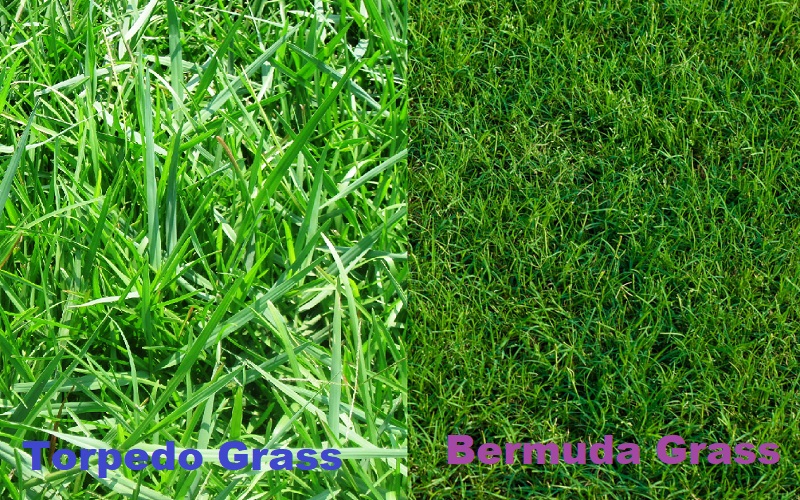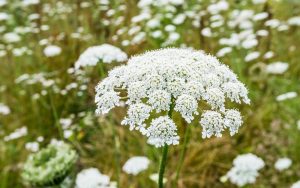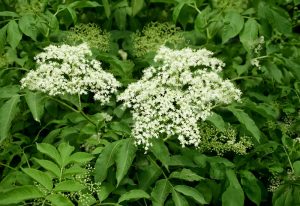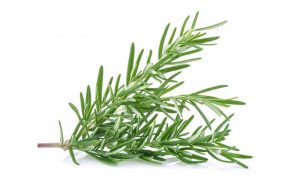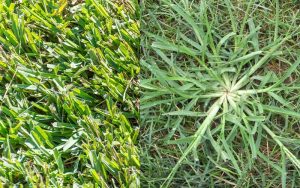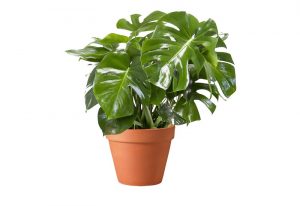Torpedo grass and Bermuda grass are two varieties of grass that are commonly used in lawns. However, there are many differences between these two types of grass. They differ widely in their planting, maintenance, and mowing requirements.
This article will help you to know the differences between these two types of grasses.
Torpedo Grass Vs Bermuda Grass | What Are The Differences?
- The Torpedo grass is a perennial plant, while Bermuda Grass is an annual plant.
- Torpedo grass will die in winter and needs to be replaced every year, While Bermuda Grass needs to be replaced every year.
- Torpedo grass is a hardy plant, while Bermuda Grass is not hardy.
- Torpedo grass cannot survive in cold areas like northern states and Canada, where the temperature falls below while Bermuda grass cannot.
- Torpedo grass needs to be cut or mowed regularly, while Bermuda Grass is an infrequent weed due to its weak root system.
- Torpedo grass is very hardy and can survive the cold weather, while Bermuda Grass needs to be replaced every year as it cannot withstand cold temperatures.
- Torpedo grass looks beautiful in late summer when it grows up, but because of its nature, it will die in the winter, while Bermuda grass does not have this problem.
- Torpedo grass is very hardy and can withstand harsh weather conditions, but because of its nature, It needs to be replaced every year.
Check Out Top 3 Grass Seeds For your Lawn:
- Scotts Turf Builder Grass Seed Sun & Shade Mix is a...
- This grass seed mix is designed for full sun and dense...
- Use this lawn care product in the spring or fall to seed a...
- Each seed is wrapped in a unique WaterSmart Coating to...
- One 5.6 lb. bag of Scotts Turf Builder Grass Seed Sun &...
- Kentucky 31 Tall Fescue is the original turf for your home
- Provides a durable, economical lawn
- Thick blades of grass stand up to hot summers and heavy...
- For use in full sun to medium-shaded areas
- Produces a lighter green, drought-resistant turf
- The perfect mix of Tall Fescue, Perennial Ryegrass, Kentucky...
- Ideal grass seed for lawns that receive sun in some parts...
- Contains just the right amount of fertilizer to help your...
- For areas getting 4 to 6 hours of sunlight
- Excellent disease resistance and very good drought tolerance
How To Identify Torpedo Grass?
Torpedo grass grows in clumps all over the ground, with dense leaves on each plant. The blades are long and wide, but it is very difficult to determine which one is right or left because they grow together around the stem.
- It grows best in moist soil and has very short roots.
- There are no seeds, but you can use them as a natural fertilizer for your lawn.
- It comes up again after several years, so it is also good to plant next year’s grass along with the leaves since they will help shade out the weeds.
- It grows in colonies of short, dense stems with small leaves.
- It has a light green color and stiff blades, usually growing in clumps or groups of 4-5 near the roots.
- The leaves are very thin and soft to touch, but they can belong up to 3 feet long.
- It has a dense root system and can grow up to 2 feet tall.
- Moreover, it grows well in poor soil and is a low-maintenance grass.
How To Identify Bermuda Grass?
Bermuda grass is a warm-season annual, and it grows during the months of April through September annually in most parts of the world, with some regions having longer growing seasons than others.
- It has small leaves that are grayish and thinly hairy.
- The stems of this plant grow upright, and the leaves tend to form whorls around them as they develop from seedling until they reach a height of 2 to 3 feet.
- The upper leaves are smaller, and the lower ones grow larger as they develop from seedling until they reach a height at maturity of about 8 inches long.
- This grass will have reddish-brown flowers that appear on spikelets with narrow yellow sheaths and pollen sacs.
- The spikelets will emerge on different branches, and they come in tufts of three, each containing one seed that is greenish-brown to white or yellow depending on the variety.
- It can be found in most climates around North America, but some variations grow in other regions.
- It is a warm-season grass, which means it requires high temperatures during its growing period, and the best time to plant Bermuda Grass seed is between March and September.
Torpedo Grass Vs. Bermuda Grass | Which Is Best For A Lawn?
Torpedo grass (Paspalum repens) is a warm-season grass that grows well in the U.S., southern Canada, Mexico, and South America. It is adapted to heat and drought.
Bermuda Grass (Bambusa vulgaris) grass grows well in all areas of North America except for cold climates like Alaska or extreme southern states where it cannot survive.
Both are low-maintenance grasses that are very easy to care for. The main difference between the two is that Bermuda grass has a deeper root system than Torpedo Grass.
As a result, it can grow up to 12 feet tall, but it usually grows much shorter and stays within 2-5 feet of the ground.
Bermuda Grass is a warm-season grass that grows well in most world areas, but it can only survive outdoors during certain seasons due to its hardiness. This makes it an excellent choice for lawns with relatively mild climates.
In addition, it requires very little maintenance and only needs a little bit of water and fertilizer throughout the year. It is also not extremely harsh on clothing, so you should be able to wear your clothes comfortably around Bermuda Grass lawns without damaging them.
Torpedo Grass does not have as deep a root system as Bermuda Grass. This makes it much harder to grow in areas with extremely cold winters or extremely hot summers, but it can survive.
Torpedo grass requires very little maintenance and only needs a few hours of irrigation per week. It also does not have an extreme height limit for its growth, making it perfect for smaller lawns or lawns not in a forested area.
It is also great at absorbing water and nutrients from the soil, so it does not cause erosion but can still be maintained with regular mowing.
How To Get Rid of Torpedo grass In Your Lawn
Torpedo grass is a very common weed that can invade the lawns of many homeowners and even lead to other unwanted pests such as crabgrass, dandelions, pennywort, and other wildflowers. If you want to get rid of Torpedo grass, you should consult with a professional landscaper.
However, if you have got a small area and plenty of time, I have got some efficient ways for you. There are many ways you can choose to get rid of Torpedo grass from your lawn. If you do not want to spend money on chemicals and treatments, then there is a simple way:
You can dig out your lawn in areas where Torpedo grass has grown thick and dense with the use of shovels or spades that come in handy when planting plants. You can also use a special spray or herbicide on your lawn to eliminate any Torpedo grass that you find.
You can choose the eradication method according to how much effort it requires and comes at a lesser price. It is more convenient than digging, but it may cause stress if you are not good with your hands.
If the grass is too deep, it will be hard for you to get rid of Torpedo Grass in lawns. However, there are manual tools that enable you to remove the Torpedo grass manually from its roots without causing damage.
Another method you can use is to apply a chemical that will kill Torpedo grass.
Again, you do not have to dig out your lawn, and you only need the spray’s specific strength. The application of chemicals may be necessary if you plan to plant new plants in your yard or want it for aesthetic purposes.
Many people love the alternative method for getting rid of Torpedo grass on your lawn. You can use a specialized chemical used as fertilizer and not as an herbicide to eliminate it from your yard.
The chemicals help penetrate deep into the soil, remove all roots and stems, and other parts of Torpedo grass.
There are varieties of herbicides that will be available for you to choose from, depending on how healthy your soil is and what stage the weeds have reached in growing. You should also consider the type of plants you want to plant after getting rid of Torpedo grass.
The best way to ensure that your lawn does not get infested with Torpedo grass is to maintain its healthy condition. You can also use special chemical treatments to eliminate this weed, which will help you eliminate it and prevent any other weeds from growing in your garden.
However, if your lawn is infested by this weed or any other weeds that are not getting along well with the ones in your yard, then maybe it is time to consider hiring an experienced and reliable Torpedo Grass removal company.
How To Get Rid of Bermuda Grass In Your Lawn
Bermuda Grass is a troublesome weed that can be found in many gardens. It grows at an extremely fast rate, making it very difficult to control, especially if the infestation has already spread through your entire lawn and you would like to get rid of it completely.
The most effective way to get rid of Bermuda Grass is by using a fertilizing spray. This will eliminate the existing roots, rhizomes, and other parts that are still alive.
Using this method also helps prevent any new growth from popping up since it will kill off all traces of living tissue at once.
Another effective way to get rid of Bermuda Grass is by using a special chemical treatment. This will not only eliminate the infestation but also provide you with protection against any future growths, which will prevent it from coming back again in your yard.
If all these options are too difficult for you because they might take much time, then hiring a professional to get rid of Bermuda Grass in your yard is definitely the best way.
